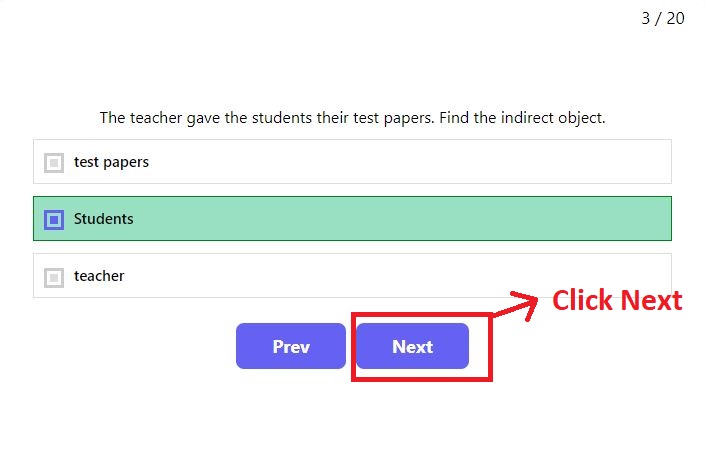Test your grammar skills with our Transitive and Intransitive Verbs Quiz! This engaging quiz will help you distinguish between verbs that require direct objects and those that don’t. You can get here the top 20 Transitive and Intransitive Verbs Quiz with Answers. Complete with answers for quick learning and self-assessment, it’s a fun way to enhance your understanding of verb types. If you give a verbs quiz then you will be able to clear your concept about verbs and also transitive and intransitive verbs details.
Dive in and see how well you know your verbs. You’ll get here the top 20 transitive and intransitive verbs quiz. You may try to take an exam to increase your skills and rate yourself.
Top 20 Transitive and Intransitive Verbs Quiz with Answers Details
Transitive and intransitive verb tests are very important for English learners. Here you will find a quiz featuring the top 20 transitive and intransitive verbs. Feel free to test your knowledge by taking the exam and assessing your proficiency.
Transitive and Intransitive Verbs Test examples
The old man was extremely loveable. Extremely is the transitive verb. True or False?
a) True
b) False
Mina stayed an actress. What is the transitive verb?
a) Actress
b) an
c) Stayed
Identify the type of verb in the sentence: “She painted a beautiful landscape.”
a) Transitive
b) Intransitive
d) Neither
The teacher gave the students their test papers. Find the indirect object.
a) Students
b) test papers
c) teacher
The captain married John and Marlene during the cruise.
a) Transitive
b) intransitive
c) Both
Identify the type of verb in the sentence: “The cake smells delicious.”
a) Transitive
b) Intransitive
d) Neither
Another quizzes for you
Types of Sentences Quiz with Answer
Common Fiverr English Skill Test questions with Answers
Pronouns Quiz With Answers Test
Prepositions Test With Answers Quiz For Every Student
FAQ’s
What is the best definition of an intransitive verb?
An intransitive verb is a verb that does not need a direct object to show who or what is being acted upon. For instance, the verb “yawn” is intransitive as it cannot be done to something. On the contrary, a transitive verb requires a direct object.
Identify if the verb in the sentence is transitive or intransitive: “The sun rises in the east.”
Answer: Intransitive (No direct object)
Identify if the verb in the sentence is transitive or intransitive: “They discussed the project.”
Answer: Transitive (Direct object: the project)
What is a transitive verb’s simple definition?
A transitive verb is a verb that needs a direct object (such as a noun, pronoun, or noun phrase) to show who or what the verb is acting upon. In the sentence “I received a letter,” the direct object is essential for the sentence to be meaningful.
Identify if the verb in the sentence is transitive or intransitive: “He sleeps peacefully.”
Answer: Intransitive (No direct object)
Identify if the verb in the sentence is transitive or intransitive: “She opened the door.”
Answer: Transitive (Direct object: the door)
Identify if the verb in the sentence is transitive or intransitive: “The flowers bloom in spring.”
Answer: Intransitive (No direct object)
What are 10 examples of intransitive verbs?
The 10 other intransitive verbs include “laugh,” “vote,” “sit,” “increase,” “deteriorate,” “originate,” “fluctuate,” and “trend.”
Identify if the verb in the sentence is transitive or intransitive: “He kicked the ball.”
Answer: Transitive (Direct object: the ball)
Last Word
Understanding transitive and intransitive verbs is crucial for mastering sentence structure and clarity in writing. Transitive verbs require a direct object to complete their meaning, while intransitive verbs do not. Recognizing the difference enhances your grammar skills and improves your overall communication.

